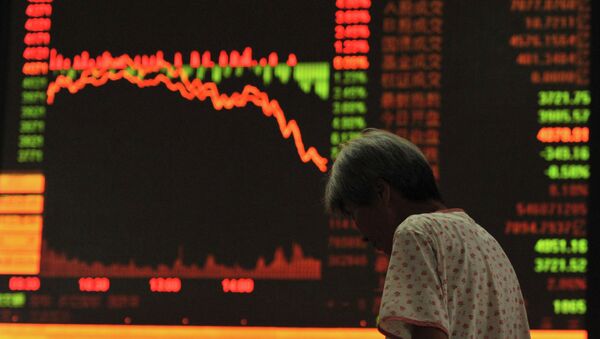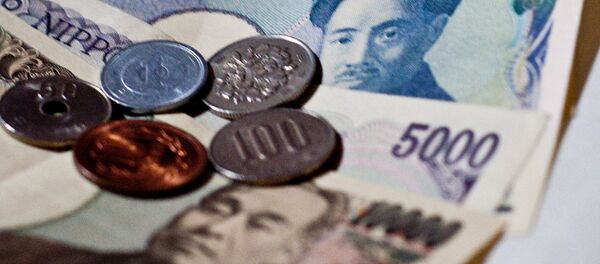Kristian Rouz – Stocks markets in mainland China continued their massive rout in recent days, with their benchmark index posting its greatest one-month decline since August 2009.
The stunning slump in the mainland’s stock market is a global concern, after all, as it has already greatly depressed world commodity prices due to the perceived – and in most cases actual – weakness on the demand side, and the Chinese impasse is overshadowing the more inspiring news from elsewhere.
The Shanghai Composite Index dropped another 1.1% at the close on Friday to 3,663.73 points, with energy and industrial manufacturers among the greatest losers.
Monthly losses for the index reached 15%, the most significant retreat among global stocks, due to investors leaving the market by either pulling their money out or going bankrupt which is more common among the non-institutional Chinese traders.
Margin lending in China took an outstanding blow, but the nation’s financials are benefitting on the government’s supportive measures designed to help the market.
Beijing’s efforts were not all in vain, as the benchmark index rebounded some 18% from its 8 July lowest, even holding firm for three weeks. But that stability is seemingly worn out as this outgoing week saw the measure tumble once again, and this time around, no one is quite sure what is happening as the governmental supportive measures are all there and intact.
Meanwhile, margin debt – the main driving force behind the unprecedented expansion of the Chinese stocks posted over the last year – has collapsed 40% since June.
In Hong Kong, the Hang Seng Index shed 14% in July, its worst performance since 2011. However, some local traders capitalized on the investors exodus from the mainland, and on Friday the Hang Seng only retreated some 0.1%, thus outperforming the Shanghai bourse.
Consequently, the European markets sank despite solid corporate and macro performance, weighed on by a drop in commodities stemming from the China situation. The European oil and gas index dropped 1%, and the STOXX Europe Index was 1.8% down on a sudden slump in copper price, also triggered by the Chinese concerns.
Stocks of BP, Statoil, Anglo American and BHP Billiton tumbled 1.2% to 2.0%.
The pan-European FTSEurofirst 300 Index lost 0.2% amidst earnings season, while only some 53% companies beat previous quarterly profits forecasts. In Europe, quarterly profits are projected to grow an annualized 5.7%.
Emerging markets are experiencing heavy turbulence stirred by the Chinese rout and the decline in commodities prices, the main source of income for most developing nations. Emerging markets’ index ended its third consecutive month in the red against the backdrop of the ever-rising US dollar and a more complicated global trade outlook.






